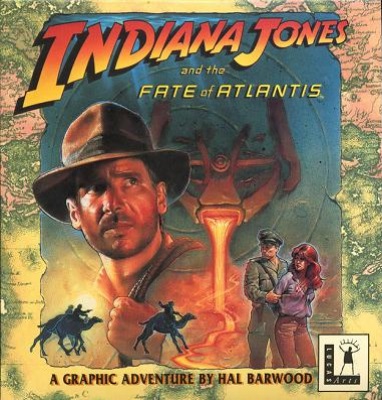
 | The Xenophile Historian |
THE HOLY BOOK OF UNIVERSAL TRUTHS,
K. U. P.
(Kimball's Unauthorized Perversion)

So how did we get this legend, anyway? In the early sixth century B.C., Solon, the famous Athenian statesman, visited Egypt, and Egyptian priests told him that their country, unlike Greece, was old enough to remember Atlantis, the oldest civilization of all. After he returned home, Solon told that story; one of the fellows who heard it passed it on to his grandson, Timaeus, many years later. When he heard the legend, Timaeus was ten years old, and his grandfather was ninety. Then Plato heard it, and wrote it down in one of his works, also named Timaeus. Thus, by the time it got to Plato, the story was at least a fourth-hand account. That, plus the fact that Solon and Plato lived nearly two hundred years apart, means there were plenty of opportunites to garble the details. And the Egyptians were notoriously inaccurate historians; if you don't believe that, read an excerpt of Manetho and see how much sense you can make of it.
At best, Atlantis is an Egyptian account of the Minoan Civilization. They called the Minoans the Keftiu, and respected them more than other foreigners, because they were the best sailors of the Bronze Age. Recently Manfred Bietak, the archaeologist who is excavating ancient Avaris, reported the discovery of a small palace decorated with Minoan-style frescoes, and dated it to the beginning of the XVIII dynasty; presumably this was a place where Minoan traders or ambassadors stayed, while visiting the main city of northeast Egypt. The Minoan civilization also dominated Greece in its heyday, was more advanced and more peaceful than its rivals, and was crippled, if not destroyed, by a natural catastrophe (the Santorini eruption); allowing for some exageration of dates, this matches the bare figures Plato gave us. However, when today's New Age gurus talk about Atlantis, they seem to have something completely different in mind. Their Atlantis sounds a lot like Babel or the world before Noah's Flood.
As for Lemuria, I have three words: it never existed. I talked briefly about this in Chapter 8 of "The Genesis Chronicles." Lemuria was invented by some nineteenth century writers who thought it was unfair that the Atlantic was the only ocean with stories of lost continents in it. You will look in vain to find any mention of it in literature older than that. New Agers can't even agree on whether its name was Lemuria or Mu, and whether it was in the Pacific or Indian Ocean. For a long time the only evidence Lemuria's advocates could produce was the presence of prosimian primates (tree shrews, lemurs, lorises and tarsiers) in two widely scattered locations, Madagascar and Southeast Asia. However, I suspect that continental drift explains this dispersion just as well. More recently some Indian nationalists have looked at some artifacts found off the coast of India and Indonesia, taken that as evidence that the continental shelf in those areas was inhabited during the ice age, and claimed that when certain Hindu myths mentioned cities whose present location is unknown, they were really talking about Lemuria. Well, even if people once lived there, it will take more than a submerged beach to make a lost continent, and current maps of the ocean floor do not show any large areas, aside from continental shelves, that may once have been dry land.
Shortly before his death, an online friend of mine, Larry Buckmaster of Chicago, suggested that the Greeks themselves saw Atlantis as an allegory, rather than true history. I'm inclined to agree; if anybody in ancient times knew a good story when they heard it, it was the Greeks. I also noticed that we don't hear of anybody in the classical era looking for Atlantis. This tells me that either they already knew where Atlantis was, or that they didn't think the story was a big deal.
Support this site!